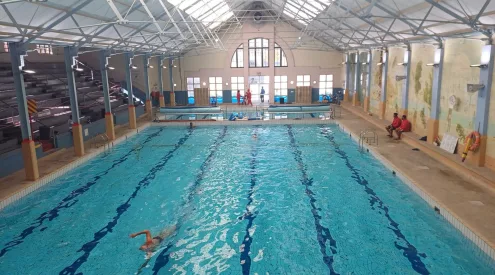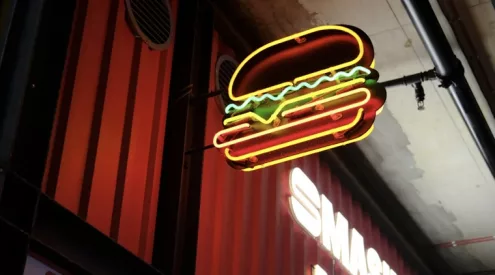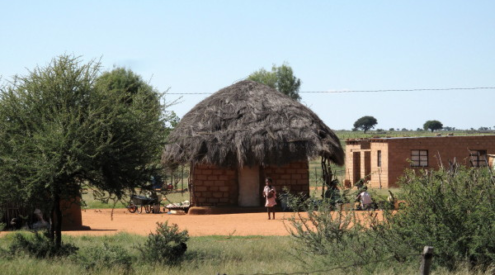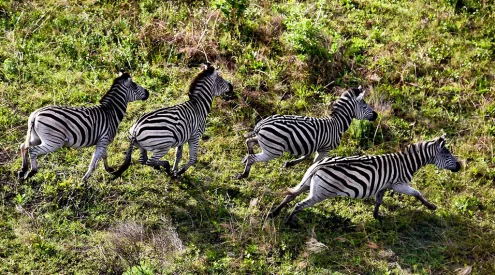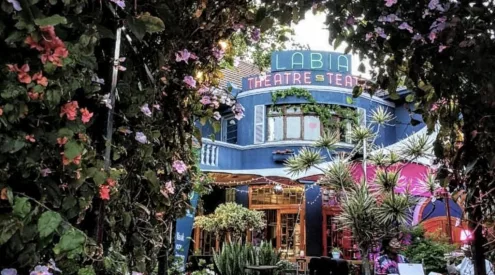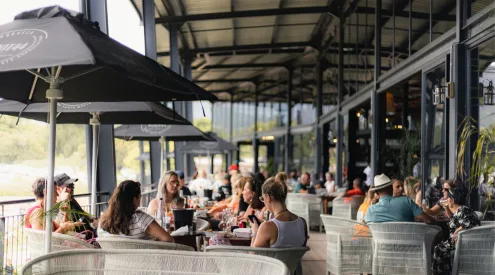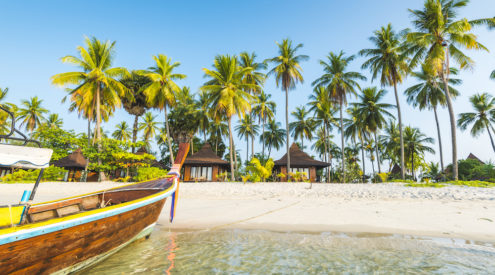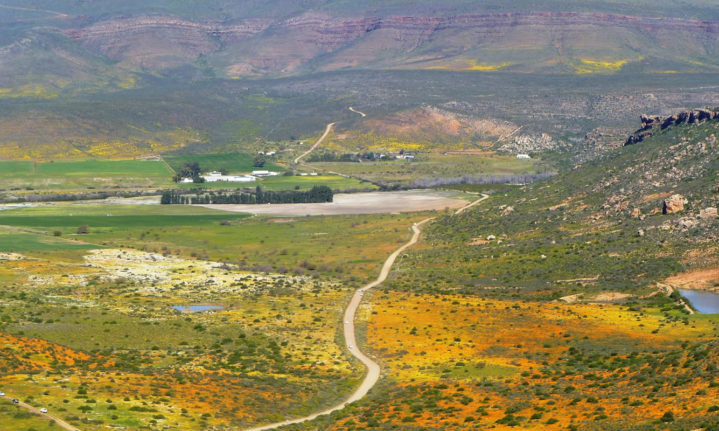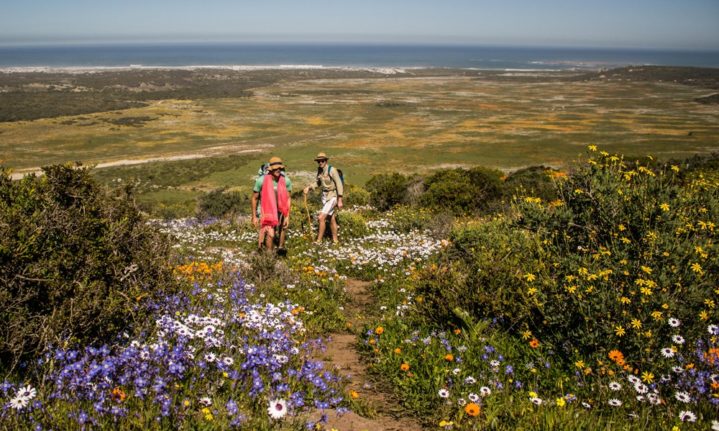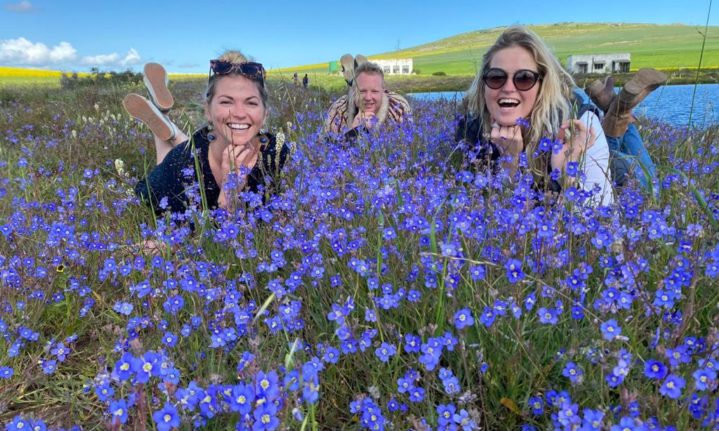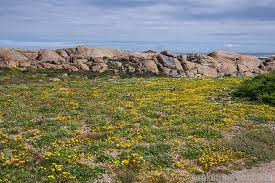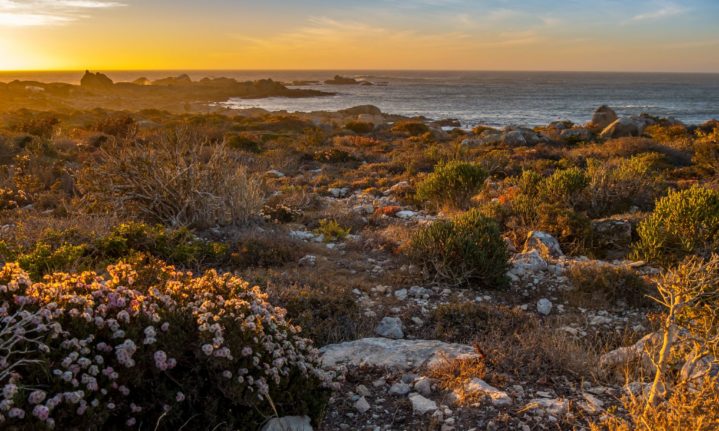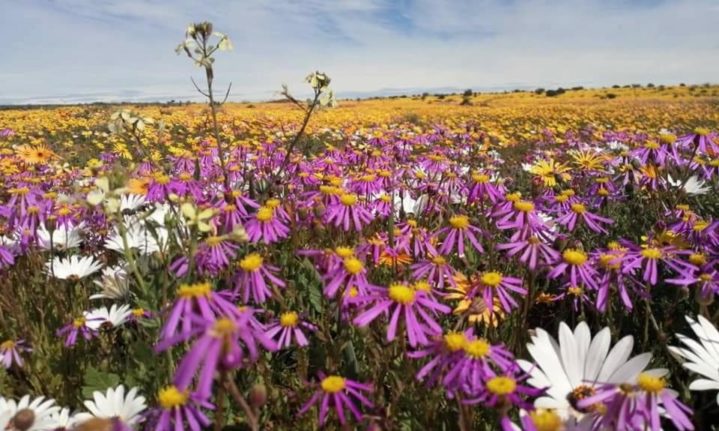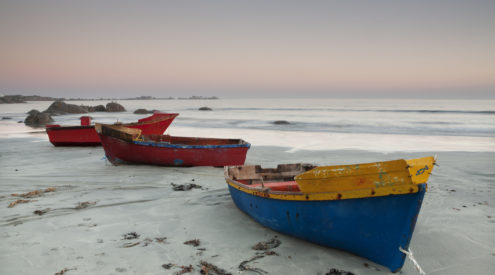The time for the West Coast wildflowers is here! One of the world’s great botanical bonanzas, the flowers that spring up in August and September are truly spectacular. But where to go? And when exactly?
The flowers start blooming in the north first, and like a great unfurling butterfly’s wings, the colours spread south as spring comes closer. The rains have a big part to play and the peak of the flower show can never quite be predicted. It’s best to make a weekend of it, although there are plenty of fantastic day trips from Cape Town too. Of all the options to choose from, these are our best picks.
1. Biedouw Valley
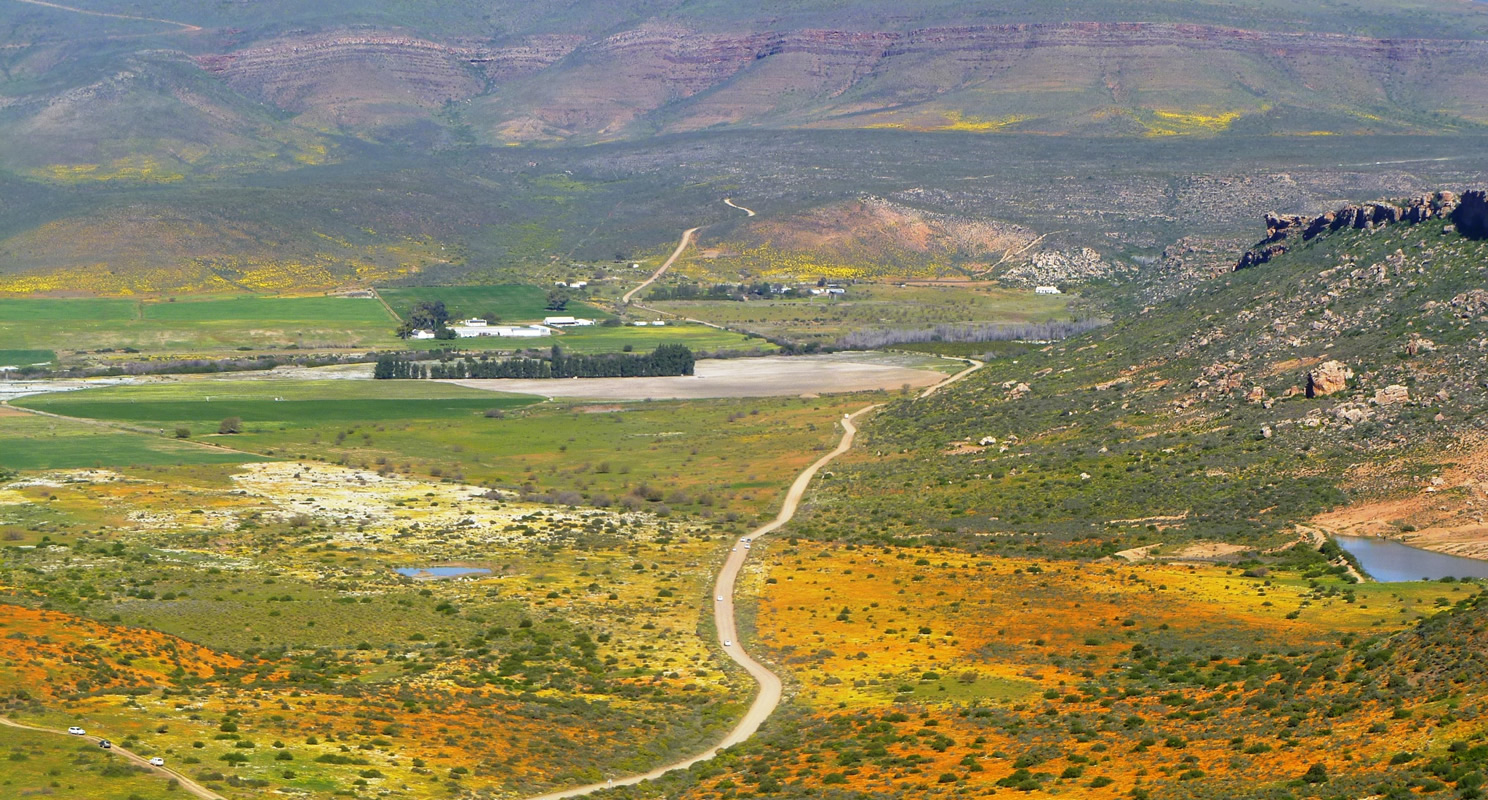
Come spring, the valley is transformed. Credit: Biedouw Valley Rooibos
Biedouw Valley lies over the Pakhuis Pass from Clanwilliam and is often one of the best places in the Cape to see the blooms. After good winter rains, the normally dry land becomes a carpet of spring flowers with nemesias, lachenalias, babiana and ixias seen in great profusion.
Local farmers restrict their herds from grazing in the valley during the flower season to ensure the flowers are at their best. Yellow-and-white nemesias sway alongside blue heliophilias, gazanias, mauve senecios and an array of succulent vygies. The Ramskop Gardens in Clanwilliam are worth popping into on the way, too.
2. West Coast National Park
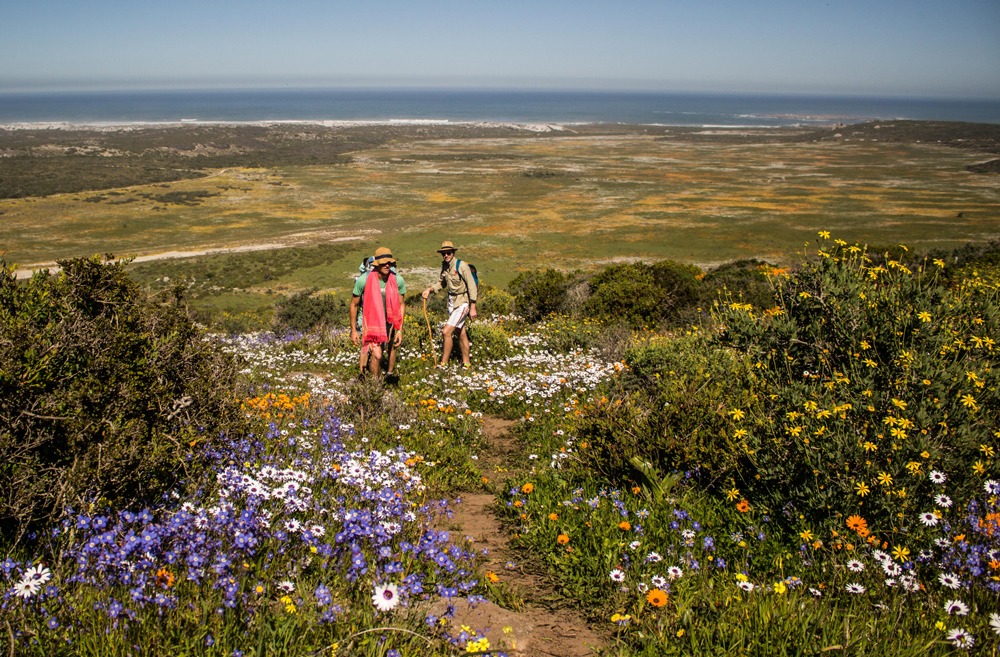
When it comes to wildflowers it often comes down to luck – good timing and good sun. Time your visits well! Credit: Matthew Sterne
Probably the best-known destination for wild-flower viewing, the West Coast National Park is relatively close to Cape Town and can really turn it on for visitors.
The Postberg Section of the park is where the magic happens and is only open to the public during the wildflower season of August and September. There are picnic and braai spots within the park, beaches worth checking out, braai spots overlooking Langebaan Lagoon and also 1- and 2-day hiking trails. Keep an eye out for ostriches, zebras and tortoises.
3. Darling
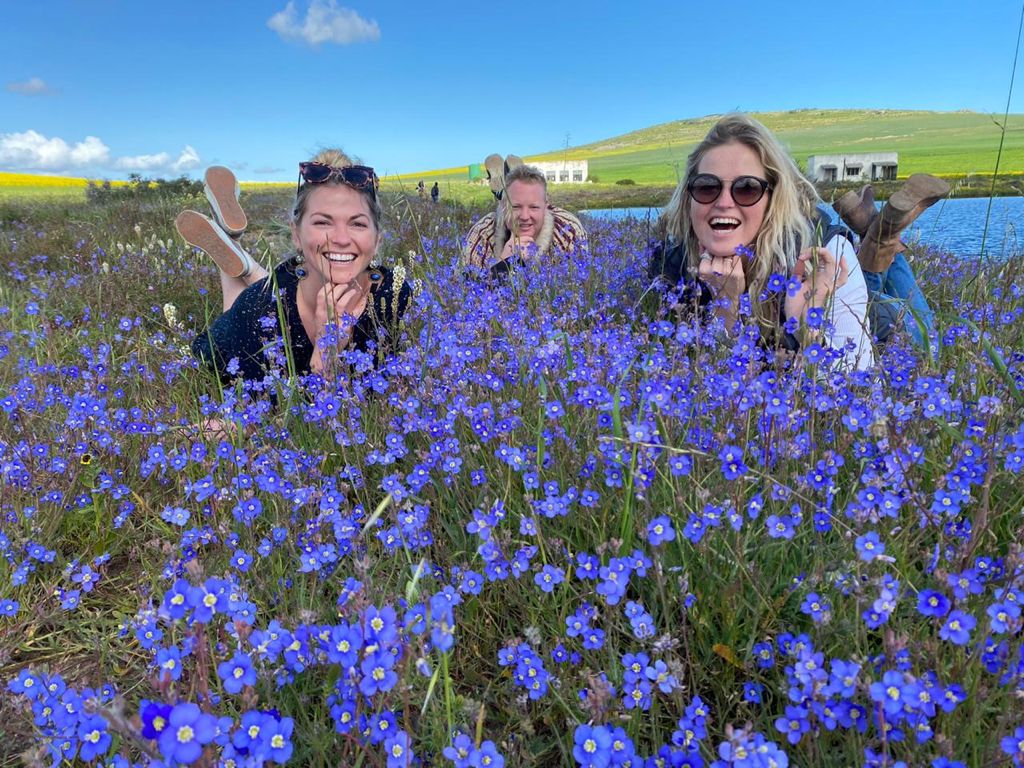
The Tienie Versfeld Reserve is a joy to explore with a walkway taking visitors through the small reserve. Credit: Courtenay Kleu
With a range of spring flowers stretching from white daisies all the way through to purple skilpadblomme, the Darling district is a well-known favourite among flower lovers. The road from Yzerfontein on the coast to Darling often has some beautiful daisies popping up, with the Tienie Versfeld Wildflower Reserve the pick of the bunch.
READ: 9 things to do in Darling, the West Coast’s most delightful town
It’s basically just a field on the side of the road, but the flowers are fantastic. According to a few online articles, ‘On this small patch of land, around 10% of the Cape Floral Kingdom can be found.’ Another spot to check out is the Renosterveld Reserve, just above Darling Primary School. Travellers can enjoy a plethora of spring flowers, as well bird-watching, in this charming 20-hectare flower reserve.
4. Namaqualand
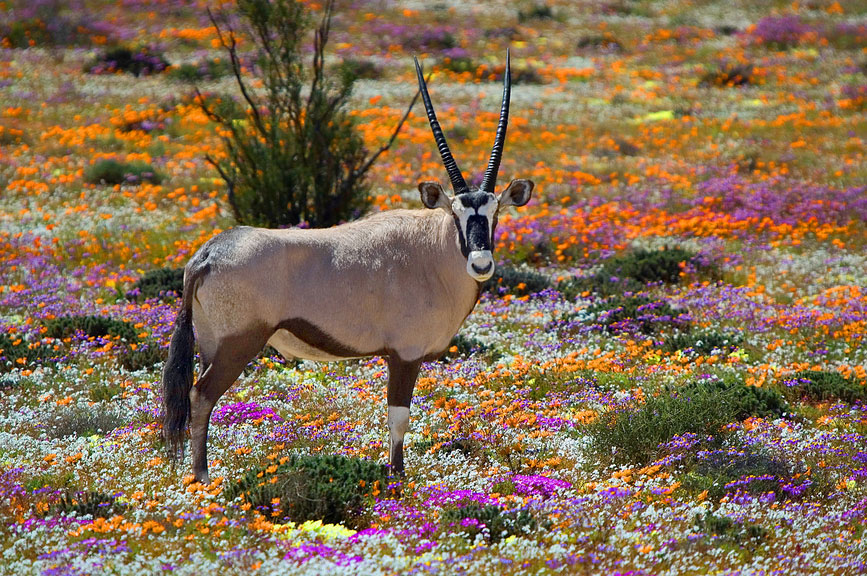
It may be far, but with scenes like this it’s well worth it. Credit: SA Venues
If you head further north along the N7 highway, beyond the Cederberg, you enter the Namaqualand that stretches all the way to Namibia. There are many flower routes along the way to explore with the Namaqua National Park a not-to-be-missed destination. After pre-spring rains, the landscape is transformed into a carpet of daisies in psychedelic colours, dotted with quiver trees and granite outcroppings that offer views to rival any natural wonder. Another reason to visit the park is that, of the 3500 species growing there, about 1000 are found nowhere else on the planet. It’s over 500 kilometres from Cape Town though, so it probably requires more than a weekend trip.
5. Columbine Nature Reserve
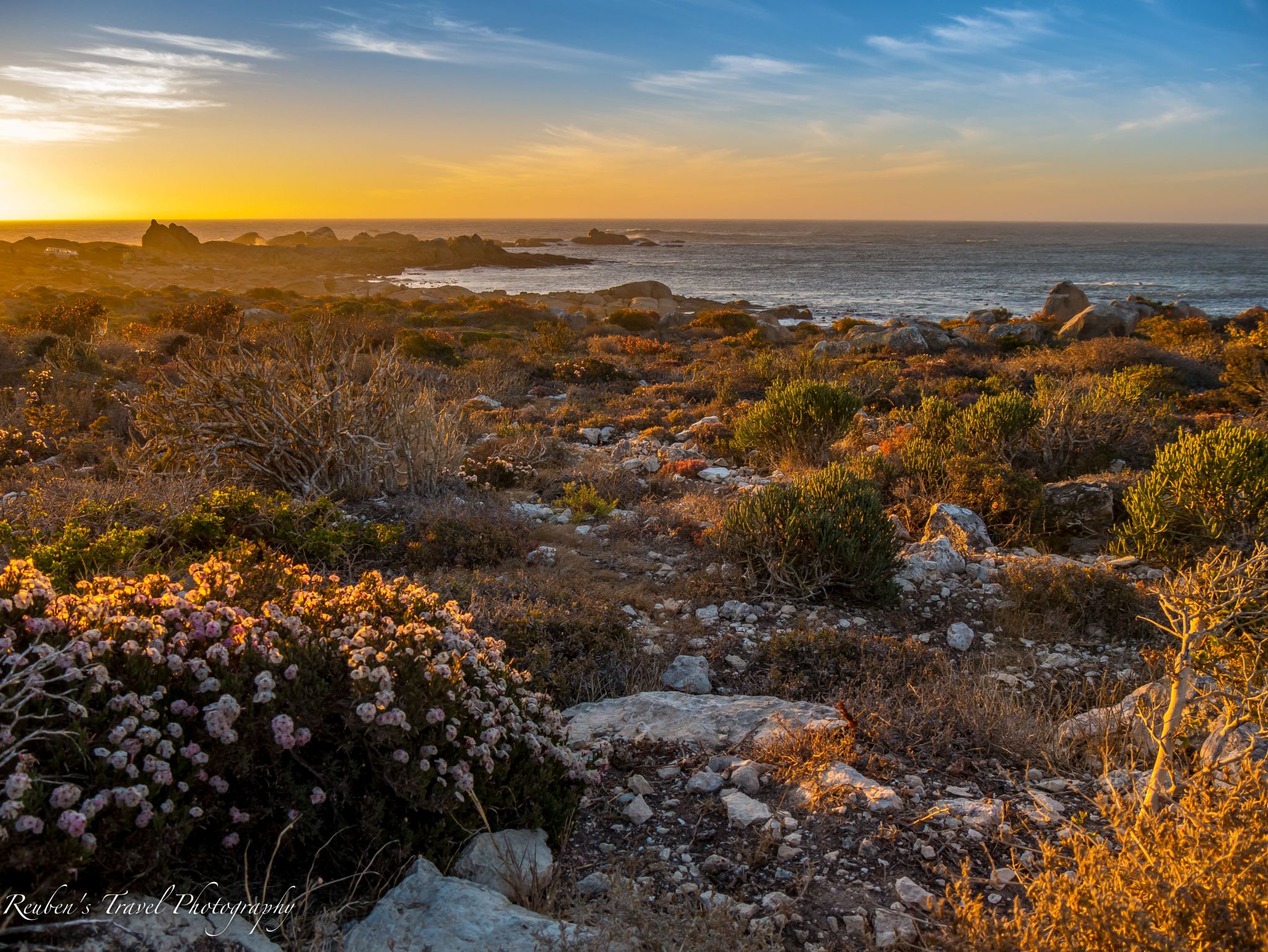
The blooms might not be as vast as other locations but the sea views make up for it. Credit: Reuben Snyder
If you’re looking to make a weekend of it, stay in Paternoster – possibly popping into Darling and the West Coast National Park on the way – and spend a morning exploring the Columbine Nature Reserve, a 263-hectare reserve nearby lighthouse. It’s host to an array of fascinating fynbos and Karoo succulents all year round, but it’s from August to October that the West Coast wildflowers bloom in their most magnificent splendour. It provides a beautiful combination of sea and flower views.
6. Nieuwoudtville
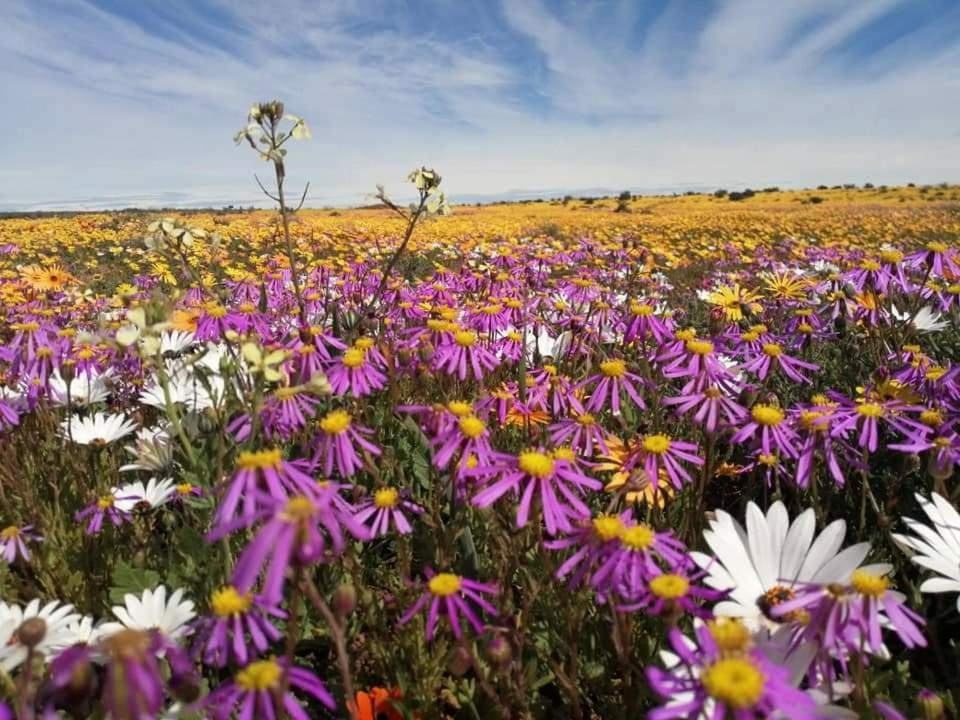
It’s a pink-and-purple petal parade come spring. Credit: booking.com
Just over four hours from Cape Town, this is also quite a long drive but the petal connoisseurs agree: the blooms on offer are some of the best in the business. The Hantam National Botanical Garden, found outside Nieuwoudtville on the R27, was once a farm and is now a renowned stop on the Cape Flower Route.
ALSO READ: Giant honeybees do the “Mexican wave” to deter wasps

